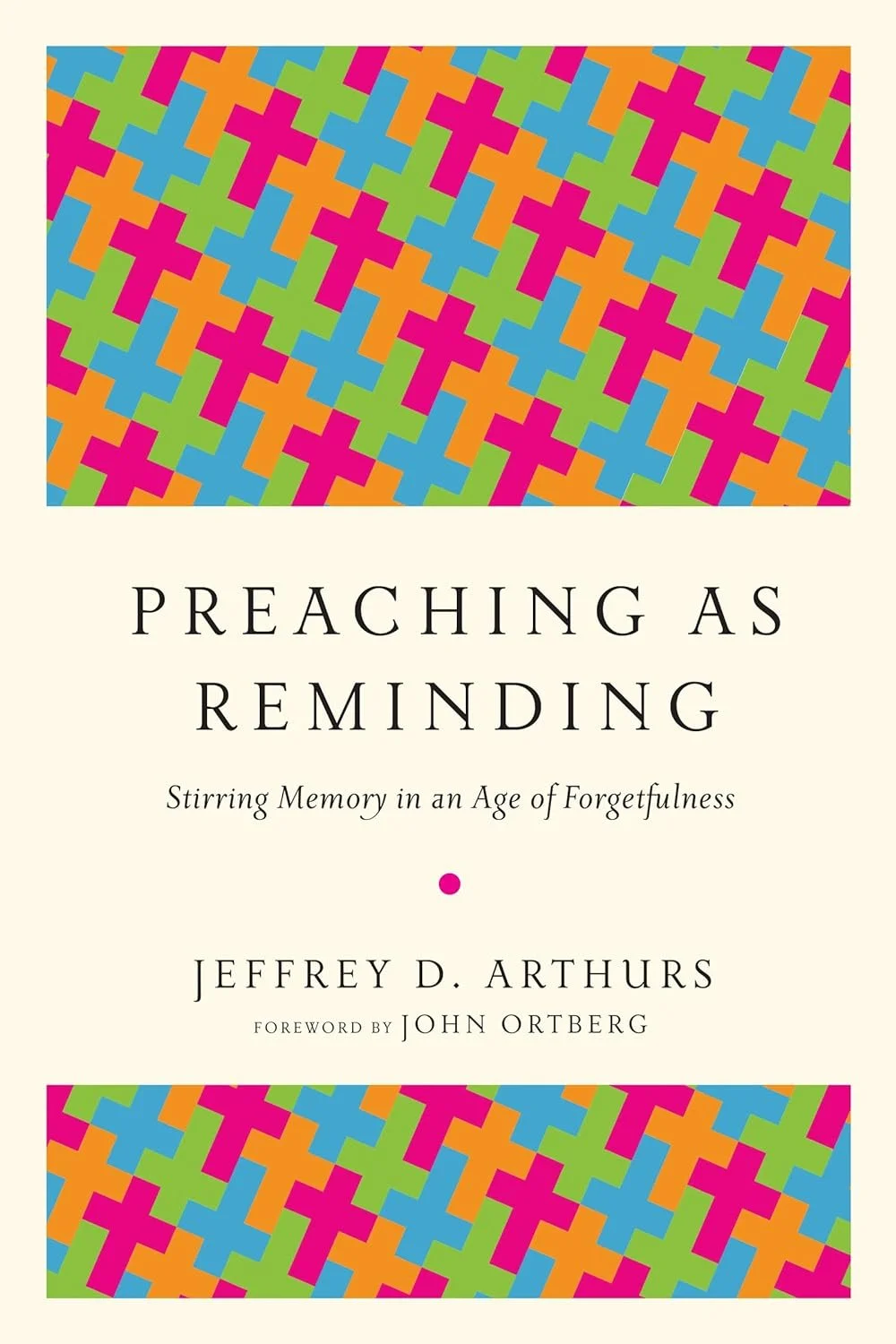The views expressed in this article are of the author only and do not necessarily represent those of the Center for Pastor Theologians.
Preaching as Reminding: Stirring Memory in an Age of Forgetfulness
Jeffrey D. Arthurs
IVP (2017). 166 pp.
Preachers are responsible to communicate the great truths of the gospel in such a way that people are moved to change how they live, turning from sin and turning toward Christ. You do not have to preach for very long until you realize this is an overwhelming, impossible task. As Paul says in 2 Cor 2:16, “who is adequate for these things?” Praise God this is a rhetorical question, as the answer is clearly “no one.” Paul soon clarifies that our adequacy as servants of the new covenant comes from God, that the Holy Spirit is the one who gives life through our words (2 Cor 3:5–6). This does not lessen the enormity of the task, but it does give us the assurance that God works to change people through preaching.
Unfortunately, this promise is easy to forget when you are struggling to proclaim something memorable, impacting, or life-changing about truths so many of your church members have already heard dozens of times. This problem is only compounded when you have faithfully pastored the same congregation for many years and your congregation is overly familiar with your favorite expressions and gestures. The temptation for many preachers is to try and be original, to say something new. Some preachers will demonstrate their exegetical prowess by “discovering” a little known truth in a familiar passage. Others will spend more time scouring the internet every week for novel ideas to anchor their sermons than they will in trying to discern what God’s word has for their people.
The purpose of Preaching as Reminding is to help preachers understand that a primary function of preaching is to help people remember what they have forgotten, to stir memory. Preachers are not purveyors of originality, but proclaimers of an “old, old story” through which God has promised to work. Jeffrey Arthurs, Professor of Preaching and Communication at Gordon-Conwell Theological Seminary, draws on the phrase “the Lord’s rememberancers” from a sermon preached by Lancelot Andrews, the chaplain to Queen Elizabeth I and King James I, to illustrate this truth. In his sermon from 1594, “Remember Lot’s Wife,” Andrews develops the idea of preachers as “rememberancers,” those members of the royal court who were tasked with reminding the king or queen of their most important, pressing business. Preachers likewise exist to remind God’s subjects of their covenant with their King. Contrary to many preachers’ fears, this can be done without nagging, monotony, or boring repetition, and it does not require novelty.
The first three chapters of the book present a biblical theology of memory, showing that memory in the Bible is more than mental recall, but the act of making past things present. Chapter one examines memory from God’s perspective, explaining what it means to say that God remembers and God forgets, while chapter two examines memory from humanity’s perspective, explaining what the Bible teaches when it says we remember and forget. Chapter three then applies memory to preaching, examining the role of the Lord’s rememberancers in helping people to remember what they should and forget what they should. Presenting examples from Deuteronomy, the prophets, and the NT epistles, Arthurs demonstrates how one of God’s central purposes for preaching is stirring memory when knowledge has faded and conviction has cooled.
The last four chapters of the book take the theology of the first three chapters and apply it to how preachers can accomplish the task of stirring memory. Arthurs explains how style (chapter four), story (chapter five), delivery (chapter six), and symbol (chapter seven), can all serve as effective tools for reminding people of familiar truths in interesting, meaningful ways. Each chapter explains the connection between the particular tool and memory, and then contains tips, practical exercises, and concrete examples from preachers such as Haddon Robinson, Bryan Chappell, Tony Evans, and Tim Keller. Throughout these chapters, Arthurs appeals to a host of ancient and contemporary Christian authors and preachers, particularly Augustine and C. S. Lewis, to help preachers grasp the importance of these tools.
The strength of the book is found in these last four chapters. Arthurs effectively responds to concerns and questions about the central role of reminding in preaching by clarifying how preachers can do this well. Any preacher, new or experienced, will find something to put into practice. The first three chapters accomplish his purpose of highlighting an important biblical theme, but in a book this size they cannot help but be cursory treatments. For example, important biblical themes such as the preacher as steward or the preacher as witness that would help establish the importance of preaching as reminding are almost wholly absent. However, the metaphor of the preacher as “the Lord’s rememberancer” is a powerful, well-needed reminder. As someone who has too often wondered, “what can I say about grace (or judgment, love, faith, etc.) this week that I did not say last week, six months, or eight years ago?” I was encouraged to remember my calling and equipped with some fresh insights to fulfill it.
Gary L. Shultz, Jr. (PhD, Southern Baptist Theological Seminary) is the Senior Pastor of First Baptist Church of Tallahassee in Tallahassee, Florida, and a member of the St. John Fellowship of the Center for Pastor Theologians.




